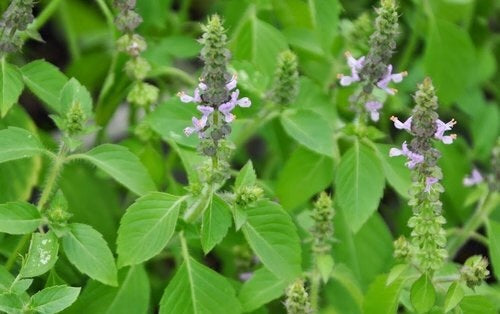Tulsi, commonly known as Holy Basil, has been a cornerstone of Ayurvedic medicine for centuries, revered for its powerful healing properties. Often called the "Queen of Herbs," Tulsi is more than just a plant; it’s a natural adaptogen that helps the body manage stress while promoting overall well-being. Whether steeped in tea or infused into other beverages, this herb is known for its ability to support immune health, improve respiratory function, and enhance emotional capacity. Its slightly peppery and earthy flavor makes it a delightful addition to any wellness routine. But did you know that Tulsi takes on an entirely new dimension when incorporated into kombucha?
At Living Vitalitea, we’re always looking for ways to elevate your kombucha experience with ingredients that support health and vitality. Infusing Tulsi into our kombucha not only adds a subtle, herbal flavor but also enhances the health benefits of our fermented drink. Tulsi’s natural anti-inflammatory and antimicrobial properties pair perfectly with kombucha’s probiotics, creating a powerhouse for gut health and digestion. This dynamic duo can also boost energy levels naturally without the need for caffeine or sugar-laden alternatives. Whether you're navigating a busy schedule or simply seeking balance, Tulsi Hibiscus kombucha delivers calm and clarity in every sip.
In a world where stress and environmental toxins take a toll on our health, Tulsi is a gentle yet potent remedy that brings harmony to both body and mind. Combining it with our handcrafted kombucha ensures you’re getting a delicious drink packed with health benefits. So why not let the Queen of Herbs reign supreme in your daily wellness routine? Taste the difference with our Living Vitalitea Tulsi Hibiscus Kombucha and feel the vibrant energy it brings.
Sources
- Cohen, M. M. (2014). "Tulsi - Ocimum sanctum: A herb for all reasons." Journal of Ayurveda and Integrative Medicine, 5(4), 251–259.
- Bhattacharyya, D., Sur, T. K., Jana, U., Debnath, P. K. (2008). "Controlled programmed trial of Ocimum sanctum leaf on generalized anxiety disorders." Nepal Medical College Journal, 10(3), 176–179.

